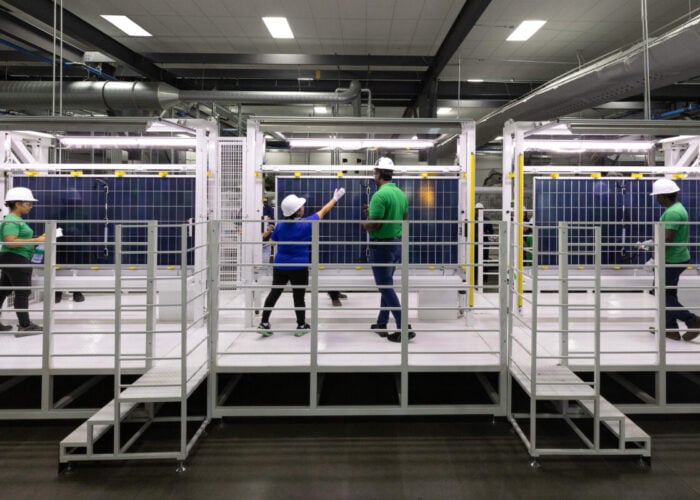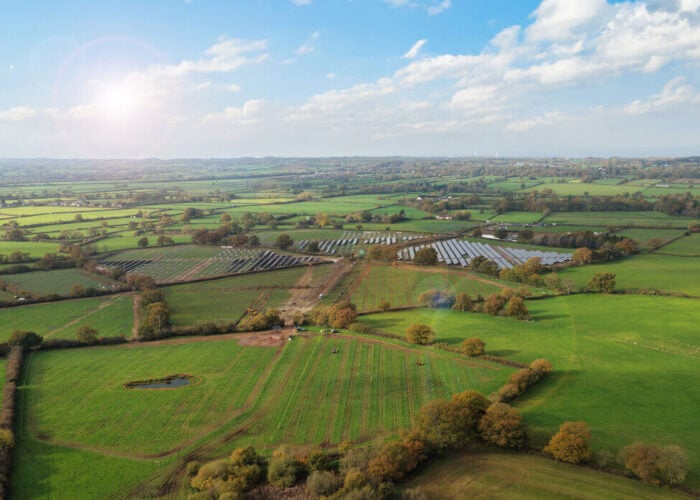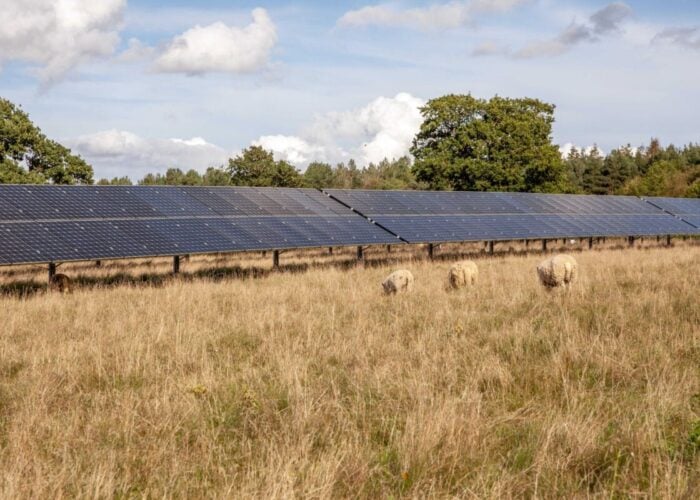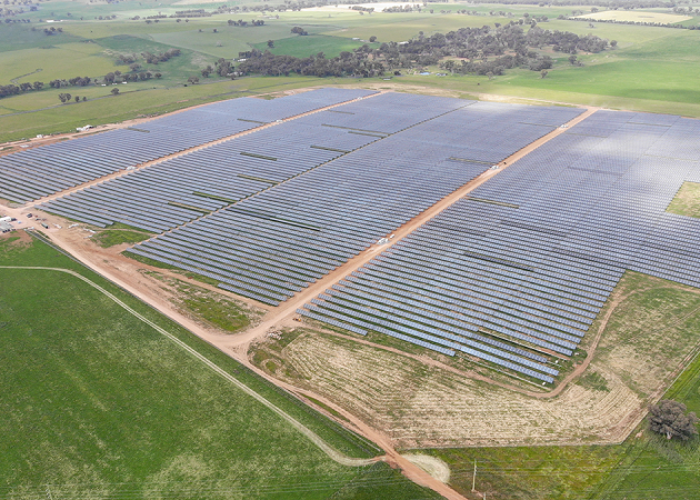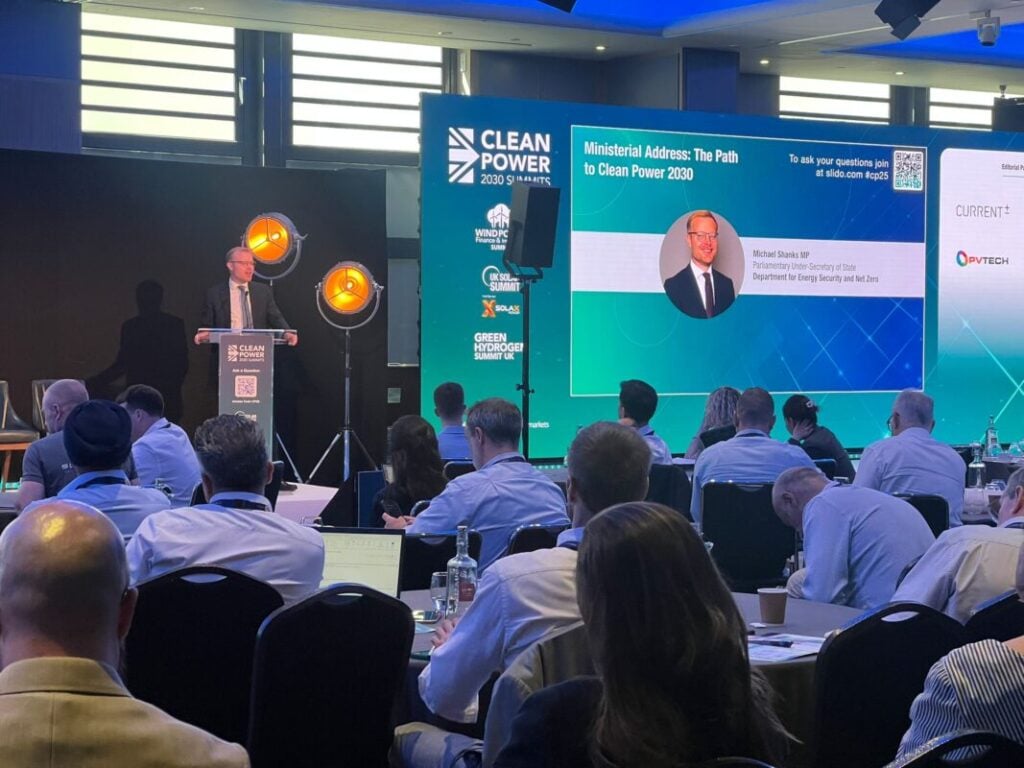
The UK government has released this week (30 June) its Solar Roadmap, which sets out practical measures to meet the country’s solar PV targets.
Among the measures the government-industry paper aims to tackle is the “once-in-a-generation” opportunity to grow the solar supply chain and manufacturing capacity in the UK. This will help support the government’s Clean Power 2030 mission and will be achieved where it “makes economic sense”, according to the paper.
Try Premium for just $1
- Full premium access for the first month at only $1
- Converts to an annual rate after 30 days unless cancelled
- Cancel anytime during the trial period
Premium Benefits
- Expert industry analysis and interviews
- Digital access to PV Tech Power journal
- Exclusive event discounts
Or get the full Premium subscription right away
Or continue reading this article for free
The solar supply chain of silicon-based modules is mostly concentrated in China, something that has been acknowledged and unchallenged in the solar sector for some time. While establishing domestic silicon panel manufacturing is not economically viable, the roadmap says there is scope to grow the production of transformers, inverters, switchgear, supporting bracketry, battery storage, and cabling.
There is also an opportunity for lightweight perovskite technology and R&D in the UK. Among the British companies working on perovskite technology is Oxford PV, which last year shipped the first commercial perovskite tandem modules. Its CEO, David Ward, was among the industry figures present at PV Tech and Energy-storage.news’ panel organised earlier this year during Intersolar Europe 2025, in Munich, Germany which discussed how Europe can secure “strategic segments” of the solar supply chain (Premium access).
During the panel, Ward said: “You cannot make a sane argument for doing traditional, old-school PV in Europe,” adding: “You make an argument for doing innovative, high-end silicon PV; you make an argument for doing tandem and standing on the shoulders of [traditional silicon PV] to do the next generation.”
The roadmap is the culmination of two years’ work, with the Solar Taskforce – which has been co-chaired by Chris Hewett, CEO of solar trade body Solar Energy UK (SEUK) and energy minister Michael Shanks – launched per the recommendation of ex-Conservative member of parliament Chris Skidmore in his 2023 Review of Net Zero, and reconvened by current energy secretary Ed Miliband shortly after the current government came to power.
Furthermore, the roadmap aims to support industry standards such as the Solar Stewardship Initiative (SSI) to ensure solar panels are procured from supply chains that stem from forced labour.
“The UK Government is clear that there should be no procurement of solar panels where there is evidence of forced labour. Through the Procurement Act, Government will empower contracting authorities to exclude suppliers from government contracts who have committed labour market misconduct and/or environmental offences in the UK or overseas,” said the roadmap.
Solar Roadmap to accelerate rollout of solar PV
The Solar Roadmap sets 72 actions for accelerating the efficient rollout of solar across the UK, divided into six categories: Rooftop Solar, Electricity Networks, Supply Chain and Innovations, Skills, Planning and support schemes, and Working with others.
One of the roadmap actions will see an investigation into the safety of ‘plug-in panels’, which have been seen deployed on balconies across Spain and Germany. According to numbers from the German Federal Network Agency, the Bundesnetzagentur, Germany installed nearly 435,000 plug-in balcony solar panels in 2024, representing 400MW of the country’s new solar capacity. Numbers that could actually be higher, said the Bundesnetzagentur, as presumably not all installations have been registered.
The technology is currently banned in the UK, but theoretically makes it easier and cheaper to deploy domestic solar by installing panels that plug into the home’s plug sockets.
This article was first published on our sister site Solar Power Portal, which has more details on the Solar Roadmap.
Additional reporting from Jonathan Touriño Jacobo.
The UK’s energy minister, Michael Shanks, delivered the keynote address at Solar Media’s Clean Power 2030 Summits in London earlier today. The event will run today and tomorrow (1-2 July 2025) and will combine the UK Solar Summit, the Wind Power Finance & Investment Summit and the Green Hydrogen Summit.


